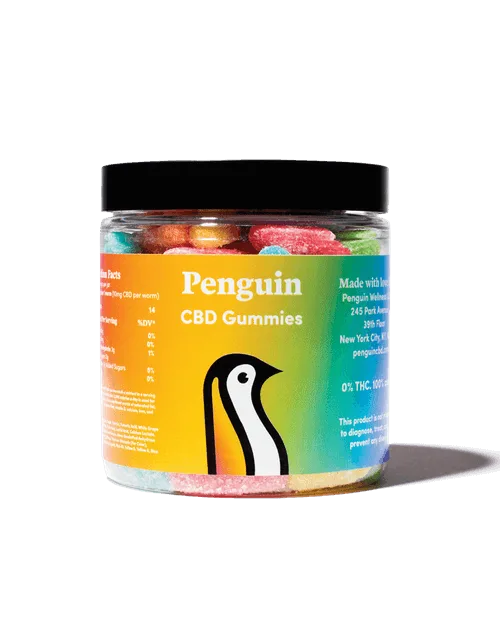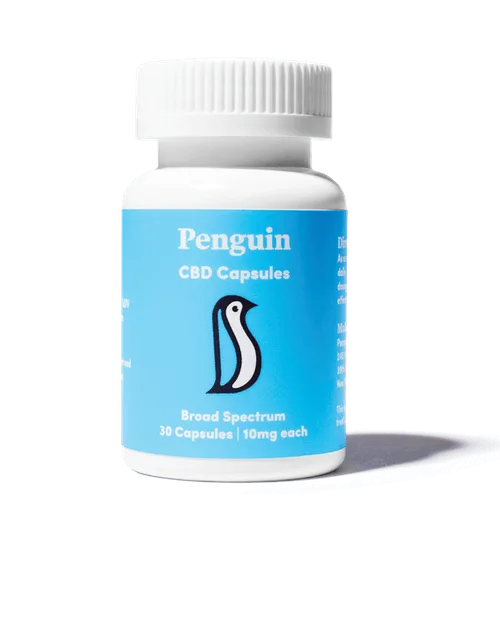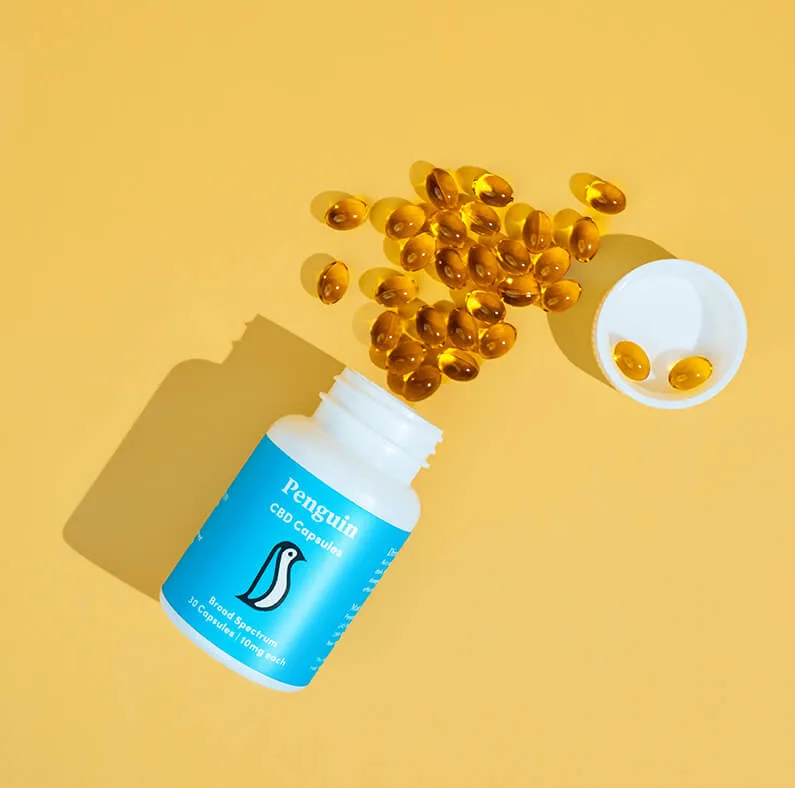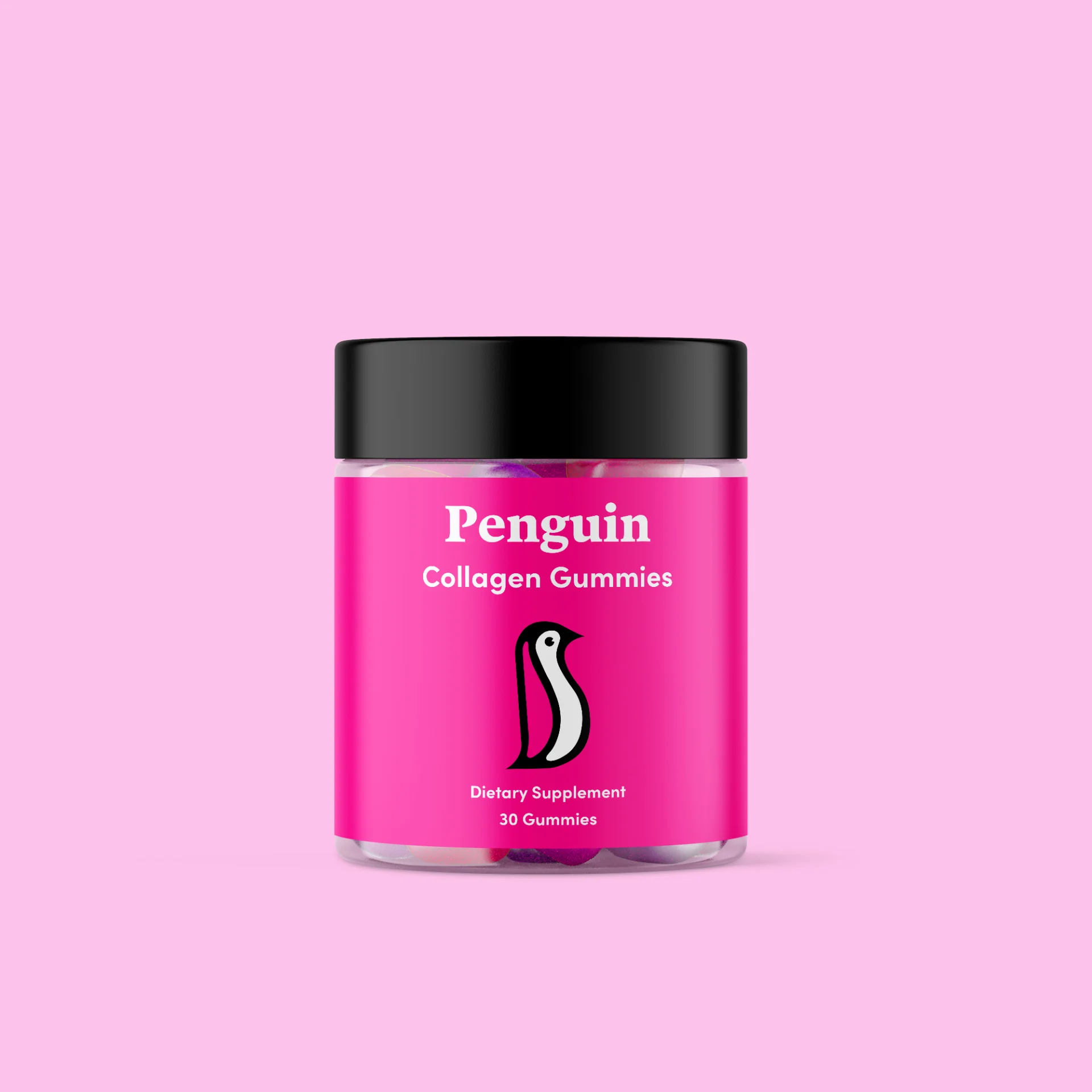Do You Need a Prescription for CBD Oil?
 By Penguin CBD
By Penguin CBDOne of the most commonly asked questions about CBD is whether one needs a prescription to take it. Unfortunately, the answer is not clear cut, just like the laws surrounding cannabis as a whole.
To understand the difficulty associated with this question, we need to look at the history of CBD.
The History of CBD in the United States
In the 1930s, hemp became a big deal. This was around the time that the U.S. halted the cultivation of industrial hemp, placing it in the same category as marijuana, a psychoactive cousin to hemp.
Hemp vs. Marijuana
When you hear “cannabis,” you most likely automatically think "joint" or "weed." But cannabis is much more than a plant with psychotropic properties.
Cannabis produces small flowers that often house the majority of the important plant compounds that we utilize today, like CBD. We typically refer to the plants grown for CBD and textiles as hemp; marijuana is generally the term used for the cannabis products that produce psychoactive properties.
The major difference between the two is in the cannabinoids. Hemp is generally low in THC (tetrahydrocannabinol) content, while marijuana contains significant quantities of it. If you’re looking for CBD products of any type, they come from hemp plants.
The Evolution of Industrial Hemp in the U.S.
Early on, the hemp plant was cultivated industrially for its fibers and its application in several other industries like building, textiles and even fuel. The hemp plant is thought to produce more fiber, fuel and food than any other plant.
Sadly, in 1937, the Marijuana Tax Act restricted the cultivation and distribution of cannabis (hemp inclusive), and this led to a drastic decline in the production of hemp. By 1970, the Controlled Substance Act banned the cultivation and harvesting of industrial hemp, classifying it as a Schedule I substance. This was the first time the federal government created a legislation grouping both hemp and marijuana in the same category.
The industries for which hemp was a necessary raw material had to search for alternatives. Deforestation, among other things, became a problem. In a bid to mitigate this, President Obama signed the 2014 Farm Bill Law, allowing research institutions, universities and state agricultural departments to pivot to hemp farming.
It was not until 2018 that President Trump signed the revised Farm Bill Law that removed hemp from the Schedule I substance category. This was the first time since 1970 that the hemp plant and its derivatives had been removed from the Controlled Substance Act, and it was a big win for the cannabis plant.
The amendment of the classification of hemp as a nonaddictive substance has opened it up to more research. Although the 2018 Farm Bill now acknowledges the chemical difference between hemp and marijuana, the regulations of this industry are not clear cut.
The mandatory amount of THC allowed in cultivated industrial hemp is pretty much the only clear-cut regulation from this bill, hence the apparent undefined rules surrounding the purchase and consumption of hemp-derived products.
Judging by how long the hemp industry has had to fight for its legality, it is no surprise that some things are still being figured out. The Food and Drug Administration reserves the right to regulate all cannabis-based products under the Food, Drug and Cosmetic Act.
Though CBD products are proclaimed as legal all over the U.S., is the situation so clear cut?
Is CBD Oil Legal Everywhere in the United States?
As THC is the main phytocannabinoid for which cannabis is so persecuted, the current Farm Bill Law addresses the quantity that is allowed in CBD products. Hemp-derived products containing not more than 0.3 percent THC content are now considered federally legal, but states may have specific requirements and regulations.
While CBD isolate oils (oils that contain only cannabinoid extracts) are covered by the federal law and are declared legal, full-spectrum oils (those that contain the whole array of cannabinoids present in the hemp plants alongside some plant terpenes, including THC) must allow the state to weigh in, and acceptance can vary widely. For instance, Idaho does not tolerate any THC content whatsoever, while Georgia allows patients who are deemed qualified to buy CBD oil with THC content as high as 5 percent, which is above the federal limit.
Suffice to say, while CBD oil is legal, the type you can get depends on where you live. Nevertheless, Penguin CBD products are legal in all 50 states.
Should You Get a Prescription for CBD Oil?
CBD is mostly just allowed to function as a supplement and not as a cure for any ailment, so you don't need a prescription to use CBD oil. However, that can change based on the type of CBD oil you use and where you live.
It is not necessary to get a prescription for CBD oils containing not more than 0.3 percent THC, like CBD isolate oils or broad-spectrum oils.
However, if your preference is full-spectrum oils, you should see a doctor for a medical marijuana card or exception. Again, this exception is totally dependent on how liberal your state is. Contact your local or state health department to be sure.
You might be wondering how to decide which CBD product to use and at what dosages. Here are some tips.
How to Make Your CBD Purchase Decisions Without a Prescription
Choosing the best CBD product for yourself in a largely unregulated market can be daunting, especially since you can't always get professional prescriptions. A way to get around this is to consider each product's qualities properly and decide what suits you the best.
- Source of the CBD: Not all CBD oils are the same and not all suppliers are trustworthy. While hemp-derived products are federally legal, marijuana-derived products are generally not. It is imperative to purchase your CBD oils from a trusted and reliable source.
- Potency: Essentially, the strength of CBD oils available for purchase varies by manufacturer and brand. More importantly, it varies according to the percentage of CBD present in the end product, thus the need to be privy to the potency of the product you are buying. Consumers have been reported to resort to some sort of trial-and-error method due to the difference in potency and absence of expected results. You can find out for yourself by trying our delicious CBD oils!
- Content and Additives: Commercial CBD oils often contain extra ingredients, from terpenes to carrier oils to other cannabinoids. You want to be aware of the contents of the product you purchase. While some extra ingredients improve bioavailability, some may contain harmful substances or ingredients you might be allergic to.
This is why we suggest that you purchase from manufacturers who are transparent about the content of their products. Accurate labeling is essential in the CBD industry, as you don't want to mistake products containing THC for those that shouldn’t.
- Expected Results: While there has been research regarding the qualities and prospects of CBD, the personal effects you intend to experience by using CBD oil as a supplement should also influence your decision making.
In cases where mood-lifting effects are the priority, you might want to consider buying CBD oils that contain other cannabinoids. This is because some of these cannabinoids have been researched more than others, and they have been found to be more effective together than individually because of the entourage effect.
- Mode of Use: There are many ways to use CBD products these days. CBD oils can be used orally, sublingually or topically. For skincare, topical CBD applications are a better fit. Depending on which mode of use is convenient for you and the result you anticipate, you might want to purchase CBD oils that specifically fit that preference.
- Price: Your budget should influence your decision making when it comes to CBD oils. There are several quality CBD products available on the market that won’t break the bank.
Where to Purchase CBD Oil
You can purchase CBD oils over the counter practically anywhere. Of course, these stores are keeping it safe and only stocking products that comply very strictly to FDA rules. Nevertheless, you can find CBD oils anywhere from online stores to malls, gas stations, coffee shops, health clubs, gyms and community markets.
However, we strongly advise that you purchase from a reputable brand, even though you might pay slightly more. Quality always trumps quantity, and since CBD is a supplement you are taking with wellness in mind, spending a little more to get trusted products is always a solid investment.
Are Any CBD Products FDA Approved?
In 2018, Epidiolex was approved by the FDA, and it is currently the only CBD product available with a prescription. This product is a pure CBD plant extract developed by GW Pharmaceuticals. It is so far the only cannabinoid-based product that is approved as a medication in the United States.
Epidiolex is available as a viscous nonpsychoactive fluid to be dispensed in syringe droppers. The component is reported to be 98 percent CBD and trace amounts of other cannabinoids, but contains no THC.
Pharmaceuticals isn’t the only area where CBD is making inroads, however.
The use of CBD in cosmetic products under strict regulations is also approved by the FDA. Frankly, the legality of CBD is a function of how it is labeled and marketed to the public. However, since capitalism and profit-making are the goal of most manufacturers, the legality of several CBD products will continue to be dubious until the FDA fully approves CBD as a compound.
Final Thoughts on CBD and Prescriptions
The bottom line: CBD and other cannabis-based medicines are continuously becoming more available and more widely consumed. Depending on the state you reside in and the type of product you want to buy, a prescription may be required.
This is the reality of the hemp industry: Sometimes you need a prescription; sometimes you can buy over the counter. In the meantime, know your state’s laws on cannabis products and patronize only trusted and reliable brands.
If you found this article helpful, please share so it can reach more people!










